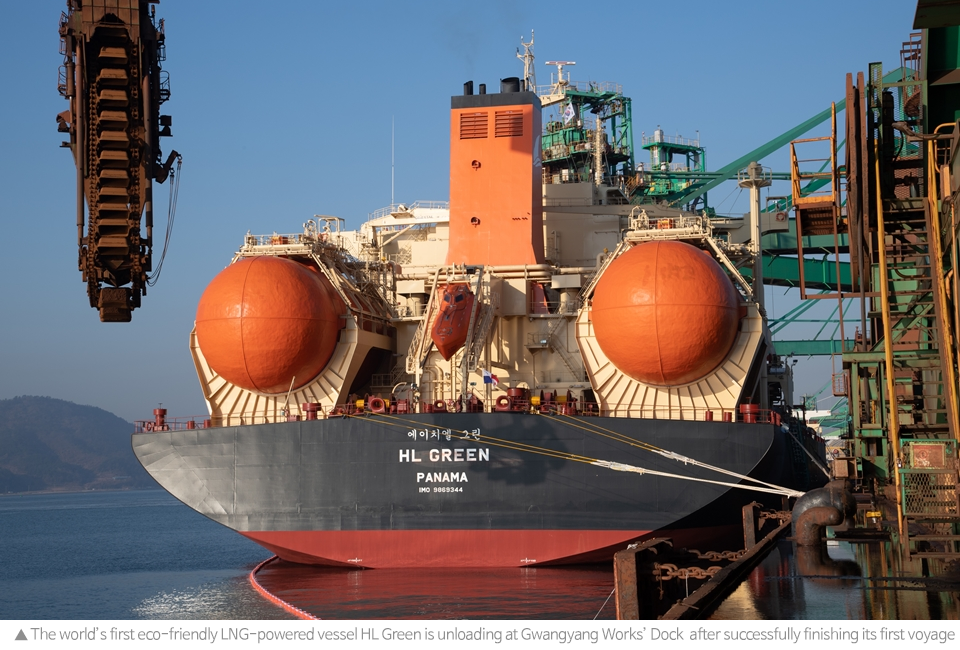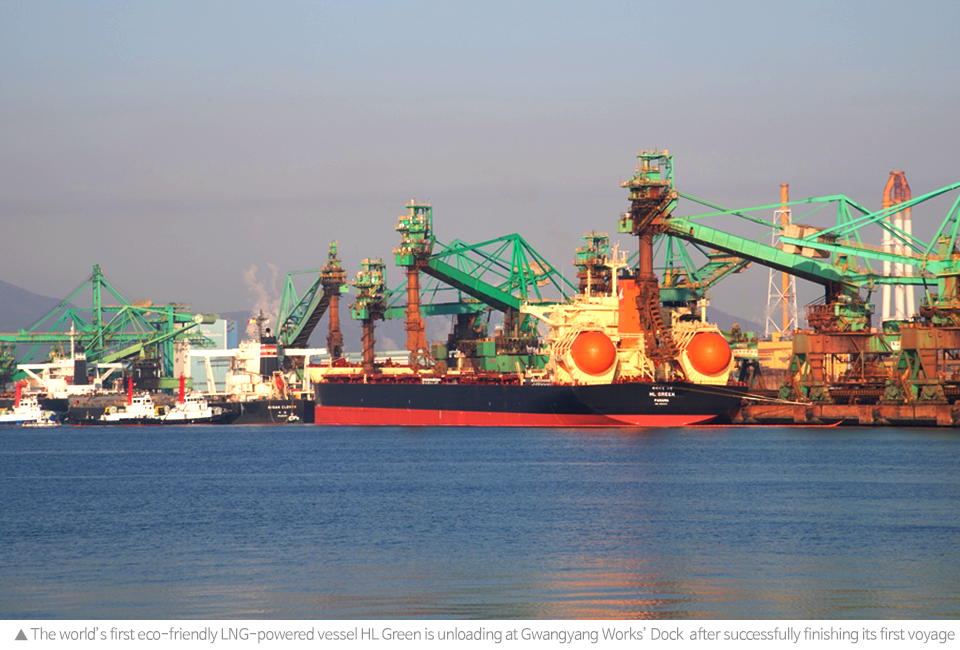l On January 20, the world’s first LNG-powered bulk carrier HL Green transports iron ore from Australia to Gwangyang Works
l LNG fuel found effective in reducing emissions of sulfur oxide and nitrogen oxide by 85% to 99%
l POSCO practices shared growth with partner companies by providing stable cargo quantity through long-term contracts with shipping companies
POSCO (CEO Jeong-Woo Choi) said that its LNG-powered bulk carrier for overseas raw material transport successfully completed its first trip, marking the start of an “eco-friendly” operation.
On January 20, HL Green, an eco-friendly vessel that departed Mokpo, South Korea last December, arrived at Gwangyang Works loaded with 180,000 tons of iron ore from Australia.
HL Green is 292m long, 45m wide, and has a deck height of 24.8m, making it the world’s largest 180,000-ton LNG-powered vessel. The use of LNG fuel can help reduce critical air pollutants sulfur oxides (SOx) and nitrogen oxides (NOx) by 99% and 85%, respectively, compared to conventional bunker fuel-powered vessels.
The case is the first in the world where a bulk carrier utilizing LNG fuel successfully completed an overseas trip.
With IMO 2020 regulation, sulfur oxides emitted from ships have to be reduced from the previous 3.5% or less to 0.5% or less. Hence, all ships are now required to either use LNG or low sulfur fuel or install exhaust gas cleaning systems.
In December 2018, before the international regulations were imposed, POSCO, together with H-Line Shipping Co., LTD., decided to preemptively replace two of its existing raw material carriers with LNG-powered vessels. Following its completion last December, HL Green had finally made a successful first trip.
Hyundai Samho Heavy Industries Co., Ltd. was in charge of the design and construction of the two LNG-powered vessels. POSCO supplied steel plates for the ships’ bodies and 9% nickel steel as cryogenic materials for the fuel tanks. Previously, domestic shipbuilders had to depend on imports for 9% nickel steel, so it has contributed to improving the competitiveness of eco-friendly domestic ships.
In addition, POSCO practiced shared growth by promising stable cargo quantity through a long-term contract with a shipping company H-Line Shipping Co., LTD., which hesitated to utilize LNG-powered vessels because of the lack of LNG bunkering infrastructure.
Other than the two LNG-powered vessels, POSCO has installed exhaust gas cleaning systems on 21 out of 38 overseas raw material carriers. The remaining ships will be replaced with eco-friendly ships, including LNG-powered ones, by cooperating with shipping companies and ship makers.
Meanwhile, on January 26, another eco-friendly vessel, “HL ECO,” which was constructed with HL Green, arrived at Gwangyang Works loaded with coal from Australia.


